
Ever since the final 0.3 seconds of Kentucky's season expired, tongues have been tattering across the Commonwealth about BBN's newest anti-celebrity, 2017's Christian Laettner: referee John Higgins. For the first 24 hours, fans scrutinized the whistle-blower's misdeeds on the court (Drew summarized them well
here), and demanded NCAA intervention. (Yeah, like they'll get to it after they sanction
North Carolina.) Then, a few miscreants went WAY overboard and threatened the referee's roofing business, and even his life, on social media. Finally, the national media
blamed the backlash to the backlash on Coach
Cal and the one-and-done system because...well...that's what the national media does.
There are few causes that unite our deeply polarized nation more than deep and enduring contempt for the men in black and white. (The refs, remember, fueled Lynn Marshall's infamous anti-UK
rant a few rounds earlier.) If Hillary Clinton was the vessel for decades of searing resentment by middle America against entitled, Establishment elitism, John Higgins is the virtual piñata for our spiraling shared antipathy to bad calls, missed calls, and conspiracy-theory-generating biases.
Which begs the question:
Does college basketball really need referees?
Given the poor and declining court record, why can't organized hoops copy the street pickup variety? Even since Naismith hung up his peach baskets, the game has been played effectively and enthusiastically in parks, gyms and backyards without the need for third party officiating. Over 90% of basketball contests (maybe 99%?) rely on the honor system; individual players admitting their own violations; or occasionally, the group debating and compromising to determine the proper cause of action.
Bringing this model to the collegiate level would have its definite upsides. Undoubtedly, less fouls would be called -- "let 'em play" would be the paradigm -- both shortening the delays in between action and potentially providing a more exciting product. There'd still be an independent check: stadium crowds could rain down their critiques, and television broadcasters could use their instant replay gizmos to expose dishonest players to opprobrium. Indeed, such a system could emulate campus honor codes, with self-reporting of misbehavior and far less incentive to game the system through
subtle cheating like flopping.
OK, OK...
Grayson Allen. I surrender.
No umping would provide a significant unfair advantage to those athletes that don't play by the rules, and to those coaches (like K) who enable bad behavior by refusing to punish transgressors. In the end, there's too much at stake -- money, university prestige, fan passion, did I mention money? -- to fire all of the refs and apply a new model.
But while we are stuck with the necessity of officiating in organized sport, referees in the real world are dramatically losing their influence. And the stakes are obviously much higher.
A new MSNBC
commercial places Meet the Press host Chuck Todd on a basketball court, citing the rules of hoops and concluding: "These days politics can use a little refereeing. And we're not afraid to blow the whistle."
But unlike their counterparts on the hardwood, the media's whistle is not binding. A foul call that affects the outcome of a ballgame is irreversible after the buzzer sounds. On the other hand, consensus media denunciation of an objective falsehood told by a candidate or elected official can all too easily be ignored. We hate the refs, but are forced to accept their judgment. We hate the press, so we reject them, period...and turn to our friends on social media for the narratives and alternative facts we prefer. And we have a President -- very popular among a significant minority of our country -- who has pushed in all of his chips in an effort to undermine the fourth estate even further: He's termed many of them "fake news" and the "enemy of the people," and just this week
renewed his calls for strong libel laws to police journalists who report inconvenient truths.
There is, fortunately, one arbiter that still does retain formal authority to rein in political power: the judiciary. But these days, the ump-ish
notion expressed by Chief Justice John Roberts in his 2005 confirmation hearings ("My job is to call balls and strikes and not to pitch or bat") seems a bit quaint. As the nation endures yet another partisan bloodbath to fill a vacancy on the Supreme Court -- and the institution-undermining prospects of a filibuster-busting "nuclear option" -- the neutral legitimacy of the judiciary is under threat. And even at the traditional apolitical district court level, the President continues to undermine confidence by decrying federal judges for their ethnic heritage and political biases.
As a guy who cut his political teeth driving around a young Al Gore in his first presidential campaign, I was devastated by the Supreme Court's 2000
Bush v. Gore decision: its out-of-left-field jurisprudence has aged even more poorly in the interim. But like the then-Vice President, I accepted the ruling immediately; that's how our democracy functions. I worry that in the next constitutional crisis, because of the toxic subversion of our sacred officiating institutions, the losing side won't be so willing to accept defeat.
The solution requires introspection and self-correction from all of our institutions. As I discussed
here, it's critical that the press does more internal policing: Treat politicians as human beings, not Pulitzer targets; take responsibility for, and learn from, media mistakes; and escape their self-validating bubble. Similarly, influential high court judges should try to emulate Chief Justice Roberts, who's struggled admirably to forge a path that retains faith in a neutral judiciary (see e.g.,
Obamacare).
But in the end it is up to our political leaders, and frankly to all of us, to retain respect for the institutions that bind our democracy together. Efforts to provide our youth civic education on the our system's checks and balances are essential. Yet grownups are the real problem. It's fine to complain about the refs in sports and politics. But unless we invest some institutions with the legitimacy to arbitrate controversies, we will have a whole lot more to complain about.
 Ever since the final 0.3 seconds of Kentucky's season expired, tongues have been tattering across the Commonwealth about BBN's newest anti-celebrity, 2017's Christian Laettner: referee John Higgins. For the first 24 hours, fans scrutinized the whistle-blower's misdeeds on the court (Drew summarized them well here), and demanded NCAA intervention. (Yeah, like they'll get to it after they sanction North Carolina.) Then, a few miscreants went WAY overboard and threatened the referee's roofing business, and even his life, on social media. Finally, the national media blamed the backlash to the backlash on Coach Cal and the one-and-done system because...well...that's what the national media does.
There are few causes that unite our deeply polarized nation more than deep and enduring contempt for the men in black and white. (The refs, remember, fueled Lynn Marshall's infamous anti-UK rant a few rounds earlier.) If Hillary Clinton was the vessel for decades of searing resentment by middle America against entitled, Establishment elitism, John Higgins is the virtual piñata for our spiraling shared antipathy to bad calls, missed calls, and conspiracy-theory-generating biases.
Which begs the question: Does college basketball really need referees?
Given the poor and declining court record, why can't organized hoops copy the street pickup variety? Even since Naismith hung up his peach baskets, the game has been played effectively and enthusiastically in parks, gyms and backyards without the need for third party officiating. Over 90% of basketball contests (maybe 99%?) rely on the honor system; individual players admitting their own violations; or occasionally, the group debating and compromising to determine the proper cause of action.
Bringing this model to the collegiate level would have its definite upsides. Undoubtedly, less fouls would be called -- "let 'em play" would be the paradigm -- both shortening the delays in between action and potentially providing a more exciting product. There'd still be an independent check: stadium crowds could rain down their critiques, and television broadcasters could use their instant replay gizmos to expose dishonest players to opprobrium. Indeed, such a system could emulate campus honor codes, with self-reporting of misbehavior and far less incentive to game the system through subtle cheating like flopping.
OK, OK...Grayson Allen. I surrender.
No umping would provide a significant unfair advantage to those athletes that don't play by the rules, and to those coaches (like K) who enable bad behavior by refusing to punish transgressors. In the end, there's too much at stake -- money, university prestige, fan passion, did I mention money? -- to fire all of the refs and apply a new model.
But while we are stuck with the necessity of officiating in organized sport, referees in the real world are dramatically losing their influence. And the stakes are obviously much higher.
A new MSNBC commercial places Meet the Press host Chuck Todd on a basketball court, citing the rules of hoops and concluding: "These days politics can use a little refereeing. And we're not afraid to blow the whistle."
But unlike their counterparts on the hardwood, the media's whistle is not binding. A foul call that affects the outcome of a ballgame is irreversible after the buzzer sounds. On the other hand, consensus media denunciation of an objective falsehood told by a candidate or elected official can all too easily be ignored. We hate the refs, but are forced to accept their judgment. We hate the press, so we reject them, period...and turn to our friends on social media for the narratives and alternative facts we prefer. And we have a President -- very popular among a significant minority of our country -- who has pushed in all of his chips in an effort to undermine the fourth estate even further: He's termed many of them "fake news" and the "enemy of the people," and just this week renewed his calls for strong libel laws to police journalists who report inconvenient truths.
There is, fortunately, one arbiter that still does retain formal authority to rein in political power: the judiciary. But these days, the ump-ish notion expressed by Chief Justice John Roberts in his 2005 confirmation hearings ("My job is to call balls and strikes and not to pitch or bat") seems a bit quaint. As the nation endures yet another partisan bloodbath to fill a vacancy on the Supreme Court -- and the institution-undermining prospects of a filibuster-busting "nuclear option" -- the neutral legitimacy of the judiciary is under threat. And even at the traditional apolitical district court level, the President continues to undermine confidence by decrying federal judges for their ethnic heritage and political biases.
As a guy who cut his political teeth driving around a young Al Gore in his first presidential campaign, I was devastated by the Supreme Court's 2000 Bush v. Gore decision: its out-of-left-field jurisprudence has aged even more poorly in the interim. But like the then-Vice President, I accepted the ruling immediately; that's how our democracy functions. I worry that in the next constitutional crisis, because of the toxic subversion of our sacred officiating institutions, the losing side won't be so willing to accept defeat.
The solution requires introspection and self-correction from all of our institutions. As I discussed here, it's critical that the press does more internal policing: Treat politicians as human beings, not Pulitzer targets; take responsibility for, and learn from, media mistakes; and escape their self-validating bubble. Similarly, influential high court judges should try to emulate Chief Justice Roberts, who's struggled admirably to forge a path that retains faith in a neutral judiciary (see e.g., Obamacare).
But in the end it is up to our political leaders, and frankly to all of us, to retain respect for the institutions that bind our democracy together. Efforts to provide our youth civic education on the our system's checks and balances are essential. Yet grownups are the real problem. It's fine to complain about the refs in sports and politics. But unless we invest some institutions with the legitimacy to arbitrate controversies, we will have a whole lot more to complain about.
Ever since the final 0.3 seconds of Kentucky's season expired, tongues have been tattering across the Commonwealth about BBN's newest anti-celebrity, 2017's Christian Laettner: referee John Higgins. For the first 24 hours, fans scrutinized the whistle-blower's misdeeds on the court (Drew summarized them well here), and demanded NCAA intervention. (Yeah, like they'll get to it after they sanction North Carolina.) Then, a few miscreants went WAY overboard and threatened the referee's roofing business, and even his life, on social media. Finally, the national media blamed the backlash to the backlash on Coach Cal and the one-and-done system because...well...that's what the national media does.
There are few causes that unite our deeply polarized nation more than deep and enduring contempt for the men in black and white. (The refs, remember, fueled Lynn Marshall's infamous anti-UK rant a few rounds earlier.) If Hillary Clinton was the vessel for decades of searing resentment by middle America against entitled, Establishment elitism, John Higgins is the virtual piñata for our spiraling shared antipathy to bad calls, missed calls, and conspiracy-theory-generating biases.
Which begs the question: Does college basketball really need referees?
Given the poor and declining court record, why can't organized hoops copy the street pickup variety? Even since Naismith hung up his peach baskets, the game has been played effectively and enthusiastically in parks, gyms and backyards without the need for third party officiating. Over 90% of basketball contests (maybe 99%?) rely on the honor system; individual players admitting their own violations; or occasionally, the group debating and compromising to determine the proper cause of action.
Bringing this model to the collegiate level would have its definite upsides. Undoubtedly, less fouls would be called -- "let 'em play" would be the paradigm -- both shortening the delays in between action and potentially providing a more exciting product. There'd still be an independent check: stadium crowds could rain down their critiques, and television broadcasters could use their instant replay gizmos to expose dishonest players to opprobrium. Indeed, such a system could emulate campus honor codes, with self-reporting of misbehavior and far less incentive to game the system through subtle cheating like flopping.
OK, OK...Grayson Allen. I surrender.
No umping would provide a significant unfair advantage to those athletes that don't play by the rules, and to those coaches (like K) who enable bad behavior by refusing to punish transgressors. In the end, there's too much at stake -- money, university prestige, fan passion, did I mention money? -- to fire all of the refs and apply a new model.
But while we are stuck with the necessity of officiating in organized sport, referees in the real world are dramatically losing their influence. And the stakes are obviously much higher.
A new MSNBC commercial places Meet the Press host Chuck Todd on a basketball court, citing the rules of hoops and concluding: "These days politics can use a little refereeing. And we're not afraid to blow the whistle."
But unlike their counterparts on the hardwood, the media's whistle is not binding. A foul call that affects the outcome of a ballgame is irreversible after the buzzer sounds. On the other hand, consensus media denunciation of an objective falsehood told by a candidate or elected official can all too easily be ignored. We hate the refs, but are forced to accept their judgment. We hate the press, so we reject them, period...and turn to our friends on social media for the narratives and alternative facts we prefer. And we have a President -- very popular among a significant minority of our country -- who has pushed in all of his chips in an effort to undermine the fourth estate even further: He's termed many of them "fake news" and the "enemy of the people," and just this week renewed his calls for strong libel laws to police journalists who report inconvenient truths.
There is, fortunately, one arbiter that still does retain formal authority to rein in political power: the judiciary. But these days, the ump-ish notion expressed by Chief Justice John Roberts in his 2005 confirmation hearings ("My job is to call balls and strikes and not to pitch or bat") seems a bit quaint. As the nation endures yet another partisan bloodbath to fill a vacancy on the Supreme Court -- and the institution-undermining prospects of a filibuster-busting "nuclear option" -- the neutral legitimacy of the judiciary is under threat. And even at the traditional apolitical district court level, the President continues to undermine confidence by decrying federal judges for their ethnic heritage and political biases.
As a guy who cut his political teeth driving around a young Al Gore in his first presidential campaign, I was devastated by the Supreme Court's 2000 Bush v. Gore decision: its out-of-left-field jurisprudence has aged even more poorly in the interim. But like the then-Vice President, I accepted the ruling immediately; that's how our democracy functions. I worry that in the next constitutional crisis, because of the toxic subversion of our sacred officiating institutions, the losing side won't be so willing to accept defeat.
The solution requires introspection and self-correction from all of our institutions. As I discussed here, it's critical that the press does more internal policing: Treat politicians as human beings, not Pulitzer targets; take responsibility for, and learn from, media mistakes; and escape their self-validating bubble. Similarly, influential high court judges should try to emulate Chief Justice Roberts, who's struggled admirably to forge a path that retains faith in a neutral judiciary (see e.g., Obamacare).
But in the end it is up to our political leaders, and frankly to all of us, to retain respect for the institutions that bind our democracy together. Efforts to provide our youth civic education on the our system's checks and balances are essential. Yet grownups are the real problem. It's fine to complain about the refs in sports and politics. But unless we invest some institutions with the legitimacy to arbitrate controversies, we will have a whole lot more to complain about.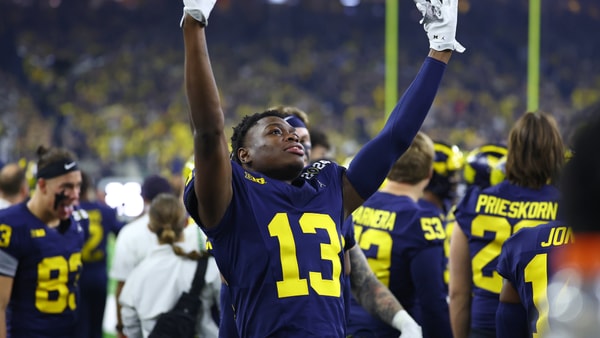
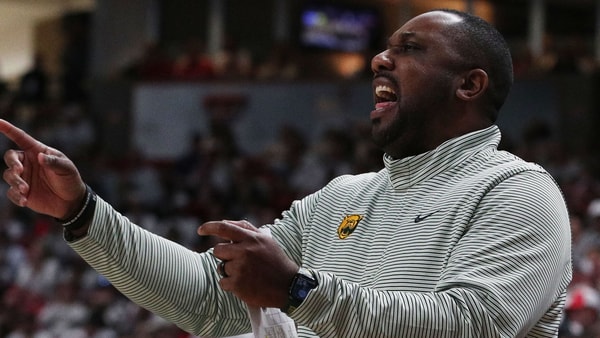
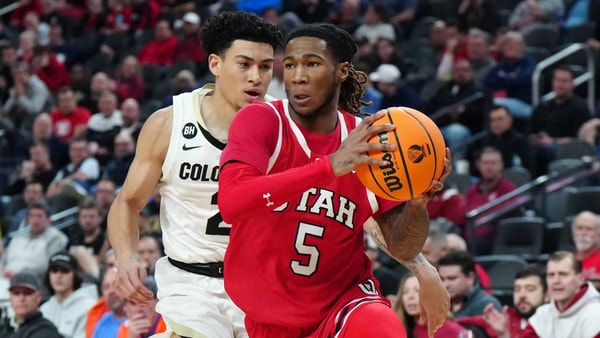
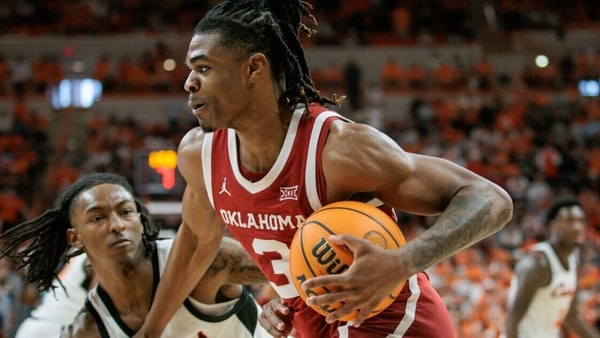
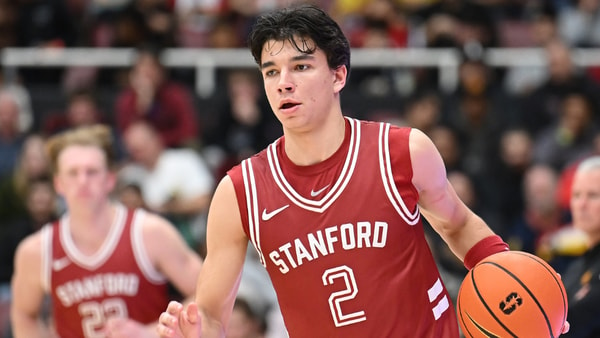

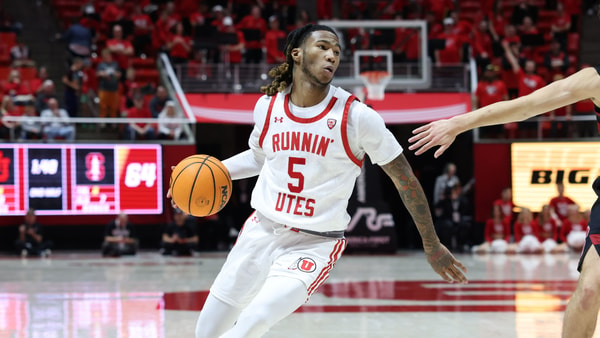
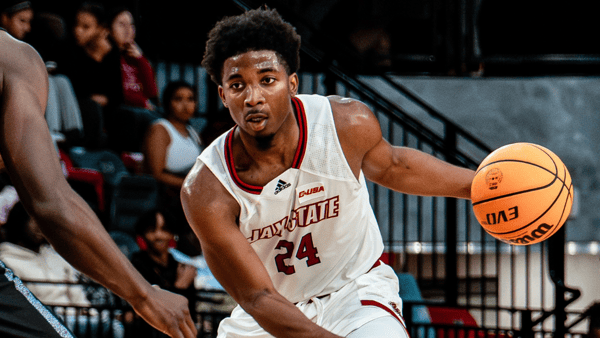
Discuss This Article
Comments have moved.
Join the conversation and talk about this article and all things Kentucky Sports in the new KSR Message Board.
KSBoard